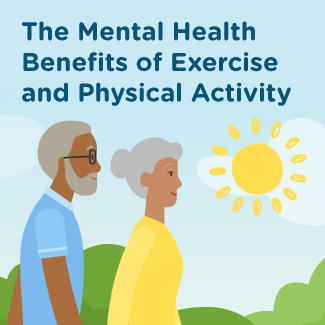Benefits of Exercise on Mental Health
Exercise has long been recognized as a crucial component of maintaining physical health, but its impact on mental health should not be underestimated. In fact, engaging in regular exercise can have a profound positive effect on our mental well-being. In this article, we will explore the various benefits of exercise on mental health and how it can contribute to a happier and healthier life.
Reduced Stress and Anxiety
One of the key benefits of exercise on mental health is its ability to reduce stress and anxiety. When we engage in physical activity, our brain releases endorphins, which are natural mood boosters. These endorphins help to alleviate feelings of stress and anxiety, promoting a sense of calmness and overall well-being.
Improved Mood and Depression Management
Regular exercise has been shown to improve mood and aid in the management of depression. When we exercise, our brain releases neurotransmitters like serotonin and dopamine, which are known as “feel-good” chemicals. These chemicals help to regulate our mood and can even act as natural antidepressants. By incorporating exercise into our routine, we can experience an uplift in mood and a reduction in depressive symptoms.
Enhanced Cognitive Function
Exercise not only benefits our mental health but also enhances our cognitive function. Physical activity increases blood flow to the brain, delivering essential nutrients and oxygen. This improved blood flow promotes the growth of new brain cells and strengthens the connections between existing ones. As a result, exercise can improve our memory, concentration, and overall cognitive abilities.
Boosted Self-Esteem and Confidence
Engaging in regular exercise can have a significant impact on our self-esteem and confidence levels. As we achieve fitness goals and witness improvements in our physical abilities, we develop a sense of accomplishment and pride. These positive feelings translate into increased self-esteem and confidence, which can greatly benefit our mental well-being.
Improved Sleep Quality
Exercise has been linked to improved sleep quality, which plays a vital role in maintaining good mental health. Physical activity helps to regulate our sleep-wake cycle, making it easier for us to fall asleep and stay asleep throughout the night. By getting enough restful sleep, we can wake up feeling refreshed and rejuvenated, ready to tackle the day with a clear and focused mind.

In conclusion, exercise offers numerous benefits for our mental health. From reducing stress and anxiety to improving mood, cognitive function, self-esteem, and sleep quality, regular physical activity can have a transformative effect on our overall well-being. By incorporating exercise into our daily lives, we can take proactive steps towards achieving optimal mental health and enjoying a higher quality of life.
Frequently Asked Questions
1. How does exercise benefit mental health?
Regular exercise has been shown to improve mood, reduce symptoms of depression and anxiety, boost self-esteem, and enhance overall mental well-being.
2. What types of exercise are most beneficial for mental health?
Aerobic exercises like running, swimming, and cycling are particularly effective in promoting mental health. However, any form of physical activity that you enjoy can have positive effects on your mental well-being.
3. How often should I exercise to experience mental health benefits?
Engaging in physical activity for at least 30 minutes most days of the week is recommended to reap the mental health benefits of exercise.
4. Can exercise help with stress and relaxation?
Yes, exercise can serve as a powerful stress reliever. It helps reduce stress hormones, improves sleep quality, and promotes relaxation.
5. Does exercise have an impact on cognitive function and memory?
Research suggests that regular exercise can improve cognitive function, enhance memory, and increase attention span.
6. Can exercise help in managing symptoms of mental health disorders?
Exercise can be an effective complementary treatment for managing symptoms of various mental health disorders, including depression, anxiety, and ADHD.
7. How long does it take to notice the mental health benefits of exercise?
Some individuals may experience immediate mood improvements after a single exercise session. However, for long-term mental health benefits, it is recommended to maintain a consistent exercise routine for several weeks.
8. Are there any specific exercises that can boost self-esteem?
Exercises that involve goal-setting, skill-building, and mastering new movements or activities can significantly enhance self-esteem and self-confidence.
9. Can exercise help in reducing the risk of developing mental health disorders?
Regular exercise has been associated with a reduced risk of developing mental health disorders, including depression and anxiety.
10. Is there a recommended time of day to exercise for optimal mental health benefits?
The best time to exercise for mental health benefits is whenever it fits into your schedule and you can consistently engage in physical activity. Find a time that works best for you, whether it’s morning, afternoon, or evening.




